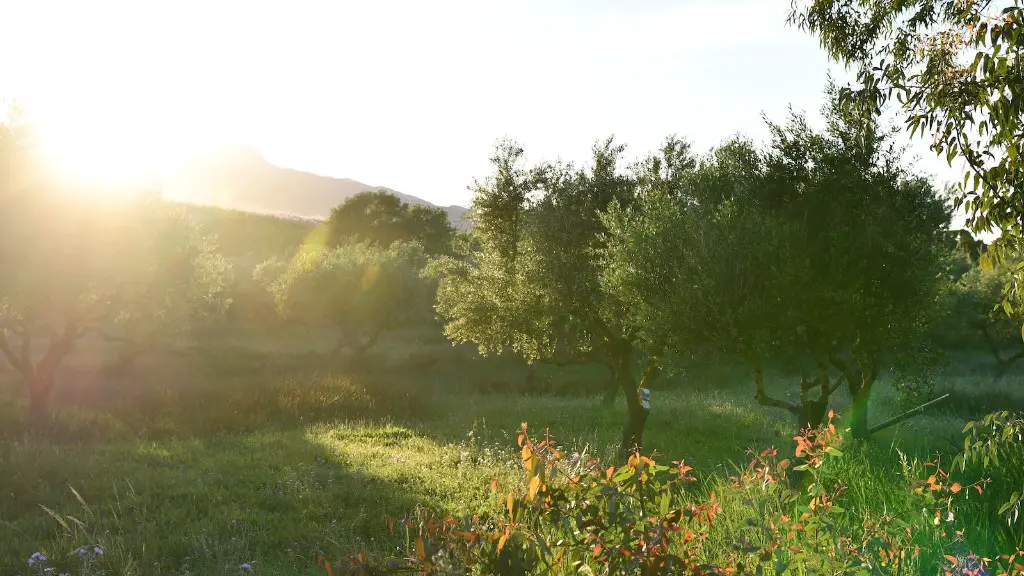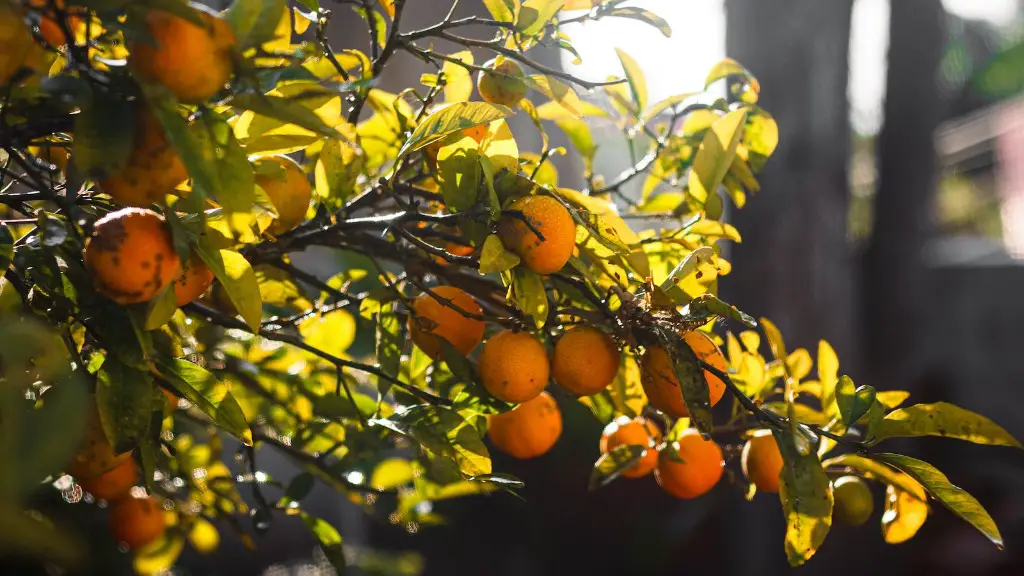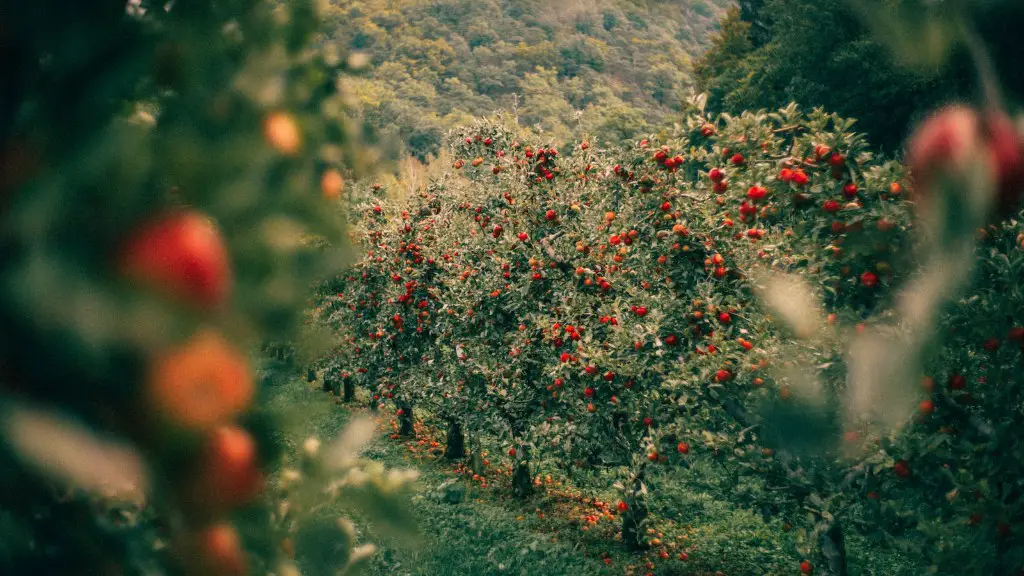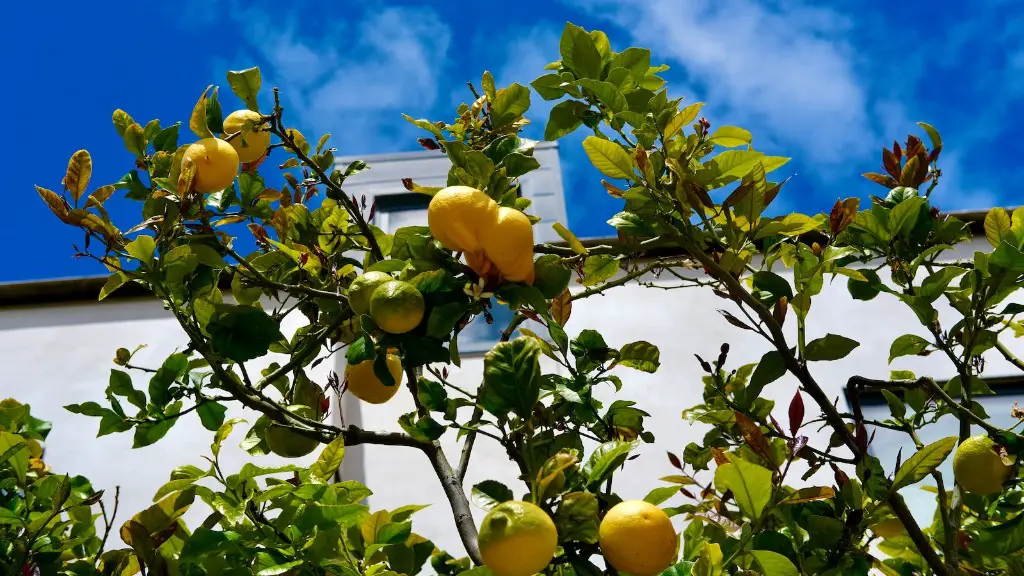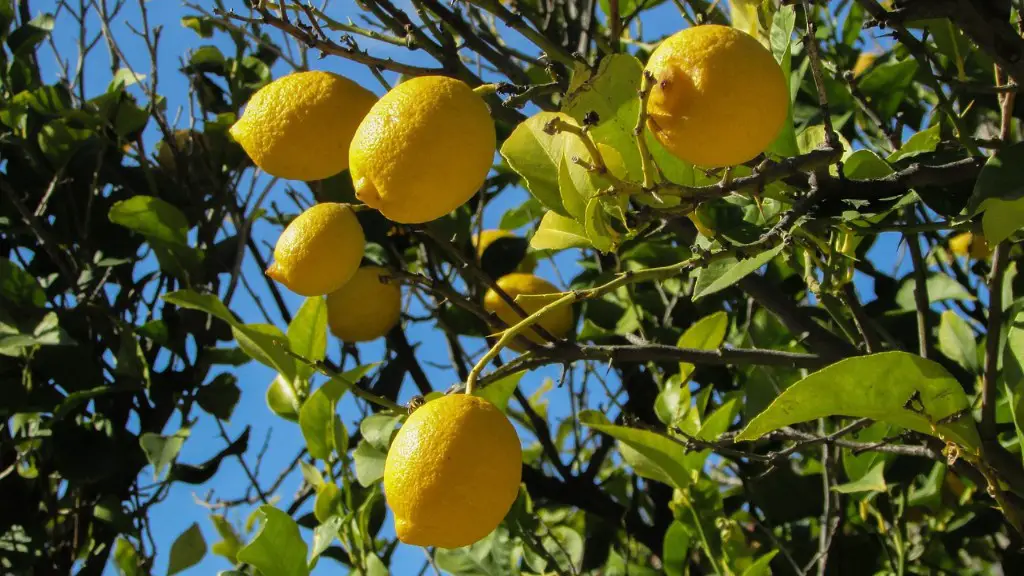Meyer lemon trees are a wonderful addition to any garden; however, they can be susceptible to a variety of pests and diseases, one of which is scale. Fortunately, there are many simple steps one can take to treat scale on a Meyer lemon tree.
The first step is to identify the type of scale that is present. Scale comes in many varieties and identifying the type correctly is important in order to make sure that the right treatment is applied. Some types of scale can be identified by their distinctive shape and color while others may not be so easily visible.
Once the type of scale is identified, the next step is to determine the severity of the infestation. If the infestation is minor, the homeowner may choose to use a horticultural oil in order to control the scale. Horticultural oil works by suffocating the scale insects and should be applied directly to the affected areas. For heavier infestations, a pesticide such as imidacloprid should be used. It is important to carefully read the directions on the label and to apply the pesticide as directed in order to avoid damaging the tree.
In addition to using pesticides, some homeowners may choose to try other methods of controlling scale, such as using insecticidal soaps or using predatory insects like ladybugs and lacewings. These methods may take longer to see results but can be effective in controlling scale without the use of harsh chemicals.
Finally, it is important to take preventive measures to avoid scale infestations in the future. Regularly assessment of the tree for insect activity is important, as well as ensuring that the tree is properly cared for. Proper watering and fertilizing, as well as pruning to promote air circulation, are all important for keeping Meyer lemon trees healthy and pest-free.
Biological Controls for Scale
Biological controls are an important aspect of controlling scale infestation on Meyer lemon trees. Predator insects, such as ladybugs and lacewings, feed on a variety of scale insect eggs, larvae and adults, which can help to reduce the number of scale insects present on the tree. Other organisms, including parasitic wasps, nematodes, and fungi, can also be effective at reducing the scale numbers.
When using biological controls, it is important that the environment is suitable for the predators to be successful. A balanced ecosystem with appropriate amounts of food and shelter is necessary in order to ensure that the predators are able to survive and be effective. Additionally, it may be necessary to supplement the natural predators with purchased ones in order to have the best results.
When using predators to control scale, it is important to note that their presence alone may not eliminate all of the scale insects. Depending on the severity of the infestation and the type of scale, other methods of pest control may be necessary in order to achieve the desired result.
Using biological controls for scale control can be an effective method, as long as the necessary steps are taken to ensure the predator population is able to survive in the environment. Additionally, other types of control methods, such as horticultural oil and pesticides, may be necessary in order to completely rid the tree of scale infestation.
Horticultural Oils
Horticultural oils are an effective way to control scale on Meyer lemon trees without the use of chemical pesticides. Horticultural oils are made from petroleum or vegetable oil and applied directly to the scale insects. The oils work via smothering, meaning they suffocate the insects on contact, leaving no residues on the tree.
Horticultural oils are a viable option for controlling scale on Meyer lemon trees, as they are a relatively inexpensive and easy to use solution. Additionally, the lack of chemical residues makes horticultural oils particularly attractive, as the surrounding environment remains free from contaminants.
Horticultural oils, however, are only effective against certain species of scale. Additionally, it is important to make sure that the oil is applied correctly and at the proper time of day in order to be effective. It is also important to note that horticultural oils can have an adverse effect on some types of beneficial insects, such as honeybees and parasitoid wasps, so caution should be exercised when applying.
Overall, horticultural oils can be an effective way to control scale on Meyer lemon trees without the use of harsh chemicals. With proper preparation, application, and timing, horticultural oils can provide a viable solution to scale infestations.
Chemical Pesticides
In some cases, chemical pesticides may be necessary to treat scale on Meyer lemon trees. Chemical pesticides can provide rapid results and are often used when the scale population is too large to control using horticultural oils or natural predators. Pesticides such as imidacloprid, bifenazate, diflubenzuron, and abamectin are effective against scale and can be used on vigorous Meyer lemon trees.
When using chemical pesticides, it is essential that the direction on the label are followed precisely in order to ensure safety and efficacy. Additionally, different pesticides may have different restrictions on the number of applications, so it is important to check the label and follow the instructions accordingly.
Pesticides should also be used in combination with other methods, such as maintaining adequate environmental conditions and using horticultural oils and natural predators, in order to achieve the best results. Additionally, it is important to use pesticides as a last resort, as some types of pesticides can have adverse effects on the environment and beneficial organisms.
Overall, chemical pesticides can be a useful tool for treating scale on Meyer lemon trees; however, they should only be used as a last resort when other methods have failed. It is essential that the directions on the label are followed precisely and that other methods, such as horticultural oils and natural predators, are used in combination in order to achieve the best results.
Integrated Pest Management
Integrated pest management (IPM) is a concept that focuses on using a range of measures to control pests, rather than relying entirely on chemical pesticides. There are many different components of IPM, many of which can be used to control scale on Meyer lemon trees.
The first component of IPM is prevention. Prevention includes taking proactive steps such as monitoring the environment for scale activity, maintaining the tree in a healthy state, and pruning to maintain optimal air flow. By preventing infestations before they occur, it is possible to reduce or even eliminate the need for more intensive control measures.
The second component of IPM is cultural controls. Cultural control methods involve altering the habitat in order to make it less favourable for the scale insects. This may involve watering the soil at the base of the tree, mulching, and pruning to reduce overcrowding. Cultural control methods are effective, cost-efficient and non-harmful to beneficial insects.
The third component of IPM is the use of biological controls, such as the introduction of predators or parasites, as discussed earlier. Biological control methods are often used in combination with the other components of IPM in order to achieve the most effective control of scale.
Finally, chemical control methods may be used in combination with the other components of IPM. Chemical control should be used as a last resort and only when other methods have failed or when the infestation is particularly severe. When using chemical control, it is important that the directions on the label are followed precisely in order to maximize the efficacy and minimize risks.
IPM is a concept that can be used to effectively and safely control scale on Meyer lemon trees. By using a combination of prevention, cultural controls, biological controls, and chemical control as necessary, one can achieve an integrated approach to pest management that can provide long-term success.
